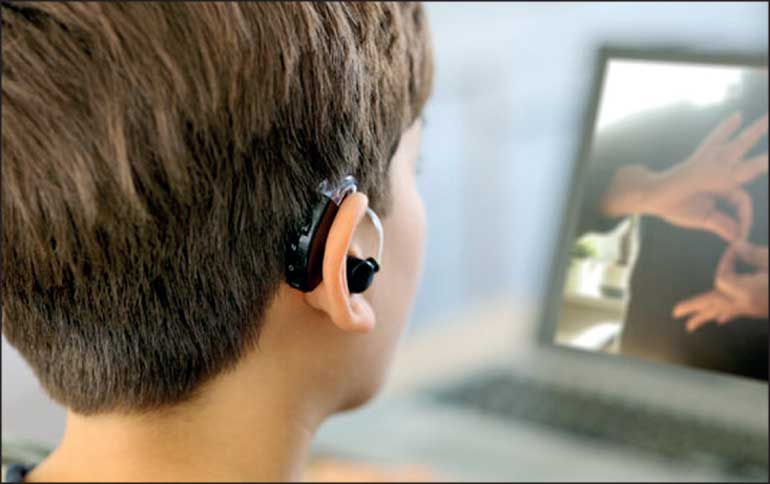Saturday Feb 14, 2026
Saturday Feb 14, 2026
Saturday, 31 August 2024 00:02 - - {{hitsCtrl.values.hits}}

Software could provide an escape for those with the aptitude, if a small push can be given to open that door
Each human comes into this world with many abilities. Some may be basic and others maybe inborn talents that are unique. There is no human who is ‘incapable’ of maximising their human potential. If a human comes into this world without the gift of sight then, if one cares to notice by observing that individual closely it will be apparent that that human is compensated with some other ability in an exceptional manner, for example, the sense of smell or instinct or a very sharp hearing.
If society does not care to learn these mysteries of the human system and the design of providence then it merely reflects that this world has a problem. The problem is not that different humans come into it differently abled, the problem is that we are looking at human beings in a robot-like fashion.
This discourse is something that we have featured in this page and we today focus on a social media post by well known capacity building promoter and writer Jekhan Arulliah.
In this piece of writing published in his facebook post Jekhan asks a very valid question; why the IT industry is not focusing on the possibility of hiring and training young persons who cannot hear as computer programmers. Let us read what Jekhan has to say and reflect on his insights.
Jekhan Arulliah’s insights on IT training for deaf kids
I recently went to visit the Kaithady Nuffield School for the deaf and blind, about 20 minutes drive along the A9 out of Jaffna, to deliver some sports equipment donated by a friend in memory of her father.
I’ve visited more than once before, but this was the first time after rain. The school looked green and beautiful. Enhanced by the home and vertical gardening. Around the school were boxes of earth on the ground sprouting green, and cut plastic bottles and pots on the walls growing all sorts of vegetables tended by the children.
Helping things grow brings great feelings of success to these differently abled children. Feelings of success that will become rarer as they themselves grow into adulthood in a world incompetent to make use of their talents.
I first met the principal, Amara Somasunderam, a few months ago. Appointed in 2022, she returned from a teaching career overseas including the UK. Amara asked me about careers for these children.
My own lengthiest career, I’ve had more than one, has been a couple of decades in the software industry. Programmers coding with headphones playing that which pleases them aren’t listening. They may as well be deaf. So why not an ideal profession for those deaf kids with the aptitude?
I asked some of my contacts, senior people in the Colombo IT industry. To my astonishment, came up completely blank. No known deaf programmers!
Not only programming, much customer support too is delivered by text and online chat. Nothing came up. From my personal experience, coding is like a ball on a slope. Once moving, it gains momentum by itself. With online resources one can learn to code with no living human help. I did it, back in the day when you could make a cup of tea while your desktop was booting up. A child just needs to be introduced, and those with aptitude will learn for themselves to become mightily skilled.
I asked around my network if there are tutors who can teach the deaf kids the rudiments of coding, so they can go on and teach themselves to expert levels. Again, nothing came up. Astonishing!
These kids are staring at a bleak future. Software could provide an escape for those with the aptitude, if a small push can be given to open that door.